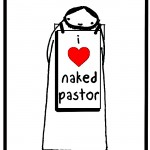
I’m not speaking theoretically here. This is real. These responses are ones I’ve either inflicted or been afflicted by. I’m not making this up. When some churches are confronted with the accusation of abuse… spiritual, emotional, sexual… whatever… these are some of the ways they manage it:
- EXPOSURE: When new people come with claims of abuse from a previous church, some pastors, even though they want the new members, fear the possibility that these people are complainers and may raise suspicions of abuse in their own churches. They fear the exposure of real or imagined cases of abuse in their midst.
- DESERVED: Some people simply can’t help believing that a victim somehow deserved what they got. I believe we live in a rape culture where we presume that people who are victimized somehow invited it and liked it, then talk about it afterwards to get even more attention. The complex idea of reaping what we sow has been cruelly mutated into a deeply ingrained disdain for victims.
- SILENCE: When I critique the church, there are people so defensive of it that they will do anything to make me shut up. They are concerned for the reputation of the church, and exposing abuse and talking about it smudges the church’s credibility. Even though the bride of Christ has wrinkles, she should be loved unconditionally with all her blemishes, they say. I’ve even been accused of gossip when discussing abuse in the church because we shouldn’t talk about our brothers and sisters like that. It’s typical codependency.
- DISCIPLINE: Christians… well not only Christians… but especially Christians have made a virtue of suffering… that it is good. And if it is good, then somehow it should be desired. And if it is desired and you receive it, then you should accept it as your lot. In fact, I’ve been told the more I suffer the more of a sign it is that God loves me and is disciplining me like a beloved son. To complain of it is to despise God.
- WEAKNESS: Often, a man who complains about abuse is considered weak and cowardly. Many men I know wouldn’t dare say they were abused by another male or female leader. Of course, this applies to women as well who don’t want to appear weak or be excused of being a typically hysterical woman. I don’t consider myself a weak person, but I have suffered incredible abuse at the hands of men, and finding wise and compassionate ears to respectfully listen to me without judgement was impossible to find.
- MANAGEMENT: Many pastors believe that managing people is their job. They are shepherds of sheep, and the pastor’s job is to keep them following, flocked, fed and fleeced. If people step out of the pastor’s vision, goals or mission statements, then they should expect some kickback. Those on the other end of the shepherd’s staff who call this control, coercion or manipulation don’t understand or appreciate the complexities of church leadership.
- PITY: I get pity every day. Even yesterday someone posted on one of my cartoons something like this: “It’s obvious you feel you’ve been really hurt and can’t get over it.” Pity is a way of elevating yourself above the sufferer and ignorantly consigning them to their pain without compassion or empathy. You want their suffering to end, not because it is unjust, but because it is uncomfortable, inappropriate, embarrassing, or unnecessary.
- FORGIVENESS: Of course, because Christianity excels in the virtue of suffering, it must also excel in the virtue of forgiveness. If you’ve been hurt, you should not only say thank you, but you should ask them to do it again by offering them the other cheek. Then, if it hurts too much, you should say I forgive you and let them do it another 489 times. So when someone accuses another of abuse, one of the most immediate church responses is that you should forgive them and move on.
- TIME: Forgiveness should be immediate. The idea of processing pain is foreign to many churches. Don’t let the sun go down on your wrath is taken seriously. If you are harmed in any way, you have till sundown to get over it and release the other person of your vengeance. Of course, in a perfect world this would be amazing. But in the real world it takes time to recover from some wounds, especially abuse inflicted by the hands of those who promised to love you.
- STANDARDS: Some pastors and churches resent the fact that the world is becoming more sensitive to abuse, rape, sexism, victims and control. A church can flourish in so many ways under the domination of a controlling pastor. I’ve seen it. But when all of a sudden we need to be careful about how we treat others… with mutual respect, dignity and compassion… and that we must allow others their freedoms and rights… and that we cannot use people for our own ends or even the ends of a noble cause… and that there are real victims out there… and that sexism is alive and well throughout our cultures and churches… and… well… you get my point. For many people it’s becoming annoying and complicated, kind of like peanut allergies.
I’ve read a lot of Karl Barth. He’s my favorite theologian. He wrote his humongous Church Dogmatics. His footnotes take up more space than the main text. Later in his life he wondered if perhaps he should have switched them around and made the footnotes the main text. That’s what I feel is happening now in the church. The issues of control, manipulation, coercion and abuse used to be the fine print. Now it’s becoming the main text. And for good reason!
Did you appreciate this cartoon and my post? If so, maybe you’d like to donate $1, $3 or $5 to the nakedpastor site. Thanks so much!
![]()
Or for just $7/month you can support our online community, The Lasting Supper!












